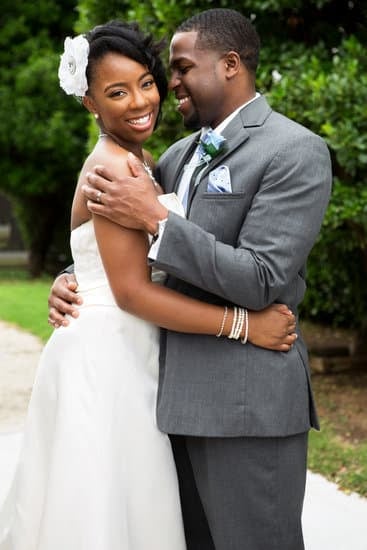What do wedding planners major in? Aspiring wedding planners often wonder about the educational paths available to pursue their career in creating perfect weddings. From event management to business and marketing, there are various majors that can provide the necessary expertise for this exciting profession.
A wedding planner plays a crucial role in ensuring that a couple’s special day goes off without a hitch. Their expertise in organizing and coordinating all aspects of a wedding, from venue selection to vendor management, is essential in creating a memorable event for the couple and their guests. With so much riding on their shoulders, it’s important for aspiring wedding planners to have the right education and training to excel in this field.
One of the key components of a wedding planner’s expertise is event management. The ability to effectively plan and execute complex events is crucial in ensuring that everything runs smoothly on the big day. As such, acquiring skills in event management through relevant education and training programs is essential for aspiring wedding planners. Whether through degree programs, certifications, or specialized training courses, these educational paths provide the foundational knowledge needed for success in the field of wedding planning.
Education and Training
Degrees in Event Management or Hospitality
Aspiring wedding planners often wonder, “What do wedding planners major in?” One common educational path for individuals interested in pursuing a career in wedding planning is obtaining a degree in event management or hospitality. These degree programs provide students with the necessary knowledge and skills to effectively plan and execute various types of events, including weddings. Coursework typically covers topics such as event coordination, venue selection, budgeting, and vendor management, all of which are essential components of successful wedding planning.
Certifications and Specialized Training Programs
In addition to traditional degrees, aspiring wedding planners may also benefit from pursuing certifications and specialized training programs. Organizations such as the Wedding Planning Institute offer certification programs that cover specific aspects of wedding planning, such as design, coordination, and business development. These programs can enhance a candidate’s credentials and provide valuable industry-specific knowledge that may not be covered in a standard degree program.
Real-Life Experience
It’s important to note that while formal education and training are valuable for aspiring wedding planners, real-life experience is equally crucial. Many successful professionals in the field have gained practical knowledge through internships, mentorship programs, or entry-level positions within the events or hospitality industry. This hands-on experience allows individuals to apply their theoretical knowledge in real-world scenarios while building a network of industry contacts that can be invaluable for future career opportunities.
Event Management
Importance of Event Management
Event management is a crucial skill for wedding planners, as it encompasses the organization, coordination, and execution of all aspects of an event. This includes creating timelines, managing vendors, handling logistics, and troubleshooting any issues that may arise during the wedding. Without strong event management skills, a wedding planner may struggle to ensure that everything runs smoothly on the big day.
Contributions to Success
The ability to effectively manage events directly contributes to the success of a wedding planner. When couples hire a professional to plan their wedding, they expect a seamless and stress-free experience.
A wedding planner with excellent event management skills can deliver on these expectations by orchestrating every detail of the event with precision and efficiency. From coordinating different elements of the ceremony and reception to managing unexpected challenges, event management expertise is essential for providing couples with the perfect wedding they envision.
Education and Training
Aspiring wedding planners can acquire event management skills through various educational paths, including degree programs in hospitality or event management, specialized training courses in wedding planning, and certification programs from industry organizations. Understanding the principles of event management and gaining practical experience through internships or entry-level positions are also valuable ways to develop this skill set. Ultimately, combining formal education with hands-on training can equip individuals with the competencies needed to excel in the field of wedding planning.
In summary, event management skills play a vital role in the success of a wedding planner’s career. By honing these abilities through education, training, and practical experience, aspiring professionals can become well-equipped to handle the intricacies of planning weddings and create memorable experiences for their clients.
Hospitality and Tourism
A major in hospitality and tourism is highly relevant for individuals pursuing a career in wedding planning. This specialized field of study equips aspiring wedding planners with valuable knowledge about the industry, including an understanding of customer service, event coordination, and the logistical aspects of organizing large-scale gatherings. With a focus on hospitality and tourism, students can gain insight into the intricacies of planning and executing weddings, honing their skills to deliver exceptional experiences for couples and their guests.
A major in hospitality and tourism provides a comprehensive education that encompasses various aspects crucial to wedding planning. Students learn about hotel management, food and beverage services, and customer relations, all of which are integral components of orchestrating successful weddings. Understanding the dynamics of different venues, catering options, and accommodations allows wedding planners to make informed decisions that align with their clients’ preferences while also considering logistical considerations.
In addition to gaining knowledge about the operational side of the industry, studying hospitality and tourism as a major can also provide insights into trends, cultural practices, and traditions related to weddings. This broader understanding allows wedding planners to appreciate the diverse needs of clients from different backgrounds and create customized experiences that reflect their unique preferences.
Moreover, as weddings often involve elements of travel and accommodation for guests, a background in hospitality and tourism can help planners navigate these aspects effectively to ensure a seamless experience for all involved parties.
| Education Component | Details |
|---|---|
| Major Relevance | Provides valuable knowledge about customer service, event coordination, logistics |
| Breadth of Education | Covers hotel management, food & beverage services,customer relations |
| Cultural Insights | Offers understanding of trends & traditions related to weddings & diversity appreciation |
Business and Marketing
When it comes to pursuing a career in wedding planning, having a strong foundation in the areas of business and marketing can be highly beneficial. Aspiring wedding planners have various educational paths available to them, including degrees, certifications, and specialized training programs that can provide them with the necessary knowledge and skills in these fields. Here are some ways in which a major in business and marketing can benefit individuals who wish to become successful wedding planners:
- Understanding Market Trends: A major in business and marketing equips individuals with the knowledge of market trends, consumer behavior, and industry analysis. This knowledge is crucial for wedding planners to understand the preferences of couples, stay updated on the latest wedding trends, and offer relevant services.
- Developing Business Acumen: Business majors learn about financial management, budgeting, and strategic planning. These skills are essential for wedding planners in managing their clients’ budgets effectively, negotiating with vendors, and ensuring that all aspects of the wedding are well-coordinated within the allocated budget.
- Brand Development and Promotion: Marketing majors teach students how to create compelling brand identities and promote products or services effectively. For wedding planners, this knowledge can be applied to developing their brand image, creating marketing strategies to attract clients, and utilizing social media platforms for promotion.
Overall, a major in business and marketing provides aspiring wedding planners with a solid understanding of the foundational principles needed to run a successful wedding planning business. By incorporating these skills into their profession, individuals can differentiate themselves within the industry and offer valuable services to couples seeking their expertise.
In addition to obtaining a degree in business or marketing-related fields, aspiring wedding planners may also benefit from pursuing additional certifications or specialized training programs focused specifically on event management within the context of weddings. These programs often cover topics such as contract negotiation, vendor management, client relations, and project management-all of which are crucial elements for success in the field of wedding planning.
Ultimately, combining a solid background in business and marketing with specialized training in event management can provide aspiring professionals with a well-rounded skill set that prepares them for a rewarding career as a wedding planner.
Communication and Interpersonal Skills
When it comes to the wedding planning profession, strong communication and interpersonal skills are essential for success. A relevant major can provide aspiring wedding planners with the necessary foundation for developing these crucial skills. Here are some ways in which a major can help cultivate effective communication and interpersonal abilities:
- Coursework in Public Speaking: Pursuing a major that includes coursework in public speaking can help wedding planners become confident and articulate communicators. This skill is invaluable when working with clients, vendors, and other professionals in the industry.
- Conflict Resolution Training: Many majors offer courses or workshops focused on conflict resolution, negotiation, and mediation. These skills are vital for handling any disagreements or challenges that may arise during the wedding planning process.
- Psychology and Human Behavior Studies: Understanding human behavior and psychology through a relevant major can provide insight into how to best communicate with clients and understand their needs, resulting in more successful relationships and weddings.
In addition to these specific ways in which a major can contribute to the development of communication and interpersonal skills, it’s important for aspiring wedding planners to seek out opportunities for practical experience and mentorship within their chosen field of study. By combining academic learning with real-world applications, individuals can further hone their abilities as effective communicators and relationship builders within the wedding planning profession.
Specializations in Wedding Planning
When it comes to pursuing a career in wedding planning, there are various specializations within the field that aspiring professionals can choose from. Each specialization may require a different set of skills and knowledge, making it important for individuals to consider what major they should pursue based on their specific area of interest. Here, we will discuss the various specializations within the field of wedding planning and the specific majors that could be beneficial for each specialization.
One specialization within wedding planning is destination weddings. This particular area of expertise requires an in-depth understanding of travel logistics, cultural customs, and international event management. As such, majoring in hospitality and tourism can be highly beneficial for individuals interested in becoming a destination wedding planner. By studying this major, aspiring planners can gain valuable insight into the travel industry, customer service, and global event planning – all essential aspects of organizing destination weddings.
Another popular specialization within the field of wedding planning is luxury weddings. These types of events often have high budgets and involve coordinating extravagant details such as designer decor, upscale venues, and high-end entertainment. For individuals interested in pursuing a career in luxury wedding planning, a major in business and marketing can be advantageous. This major provides knowledge about strategic planning, financial management, branding, and promotional strategies – all crucial elements for successfully managing luxury weddings.
In addition to destination weddings and luxury weddings, there are other specializations within the field of wedding planning such as multicultural weddings, eco-friendly weddings, and more. Each specialization may require different skills and expertise; therefore, choosing the right major is essential for acquiring the necessary knowledge and abilities to thrive in a specific area of wedding planning.
| Specialization | Relevant Major |
|---|---|
| Destination Weddings | Hospitality and Tourism |
| Luxury Weddings | Business and Marketing |
| Multicultural Weddings | Cultural Studies or Anthropology |
Conclusion
In conclusion, choosing the right major for a career in wedding planning is crucial for anyone aspiring to establish themselves in this industry. While there are no strict educational requirements to become a wedding planner, obtaining a relevant degree or certification can provide invaluable knowledge and skills that can set you apart in the field.
Whether it’s pursuing a major in event management, hospitality and tourism, business and marketing, or communication and interpersonal skills, each area of study offers unique benefits that can greatly contribute to your success as a wedding planner.
Moreover, gaining expertise in event management through education and training can be particularly advantageous as it equips individuals with the organizational and logistical skills necessary to manage the intricate details of weddings. A major in hospitality and tourism provides insight into industry trends, customer service excellence, and an understanding of various cultural practices – all of which are essential when working within the wedding planning profession.
Similarly, focusing on business and marketing can help individuals develop entrepreneurial skills that are crucial for building and maintaining a successful wedding planning business.
It is important for aspiring wedding planners to remember that while choosing the right major is essential, continuous learning and staying updated on industry trends play an equally significant role in their professional development. By combining formal education with practical experience and ongoing professional development efforts, individuals pursuing careers in wedding planning can increase their chances of success in this competitive but fulfilling field.
Frequently Asked Questions
What Is the Best Major for a Wedding Planner?
The best major for a wedding planner is typically in event planning, hospitality management, or business administration. These majors provide a strong foundation in the skills and knowledge needed to successfully plan and execute weddings and other events.
What Degree Is Best for Wedding Planning?
While a specific degree is not always necessary for wedding planning, degrees in event management, hospitality, marketing, or business can be beneficial. Additionally, gaining experience through internships, mentorships, and on-the-job training can also be valuable for a career as a wedding planner.
Where Do Wedding Planners Make the Most Money?
Wedding planners tend to make the most money in major metropolitan areas and popular tourist destinations where there is high demand for their services. Cities with a higher cost of living and wealthier client base also offer higher earning potential for wedding planners. However, success in this field also depends on reputation, experience, and the ability to market oneself effectively.

I have been involved in marriages for over 20 years helping couples and singles understand more about them.





